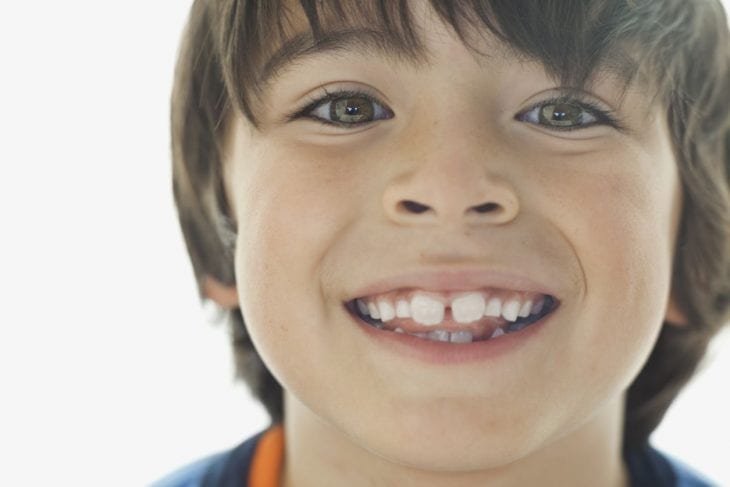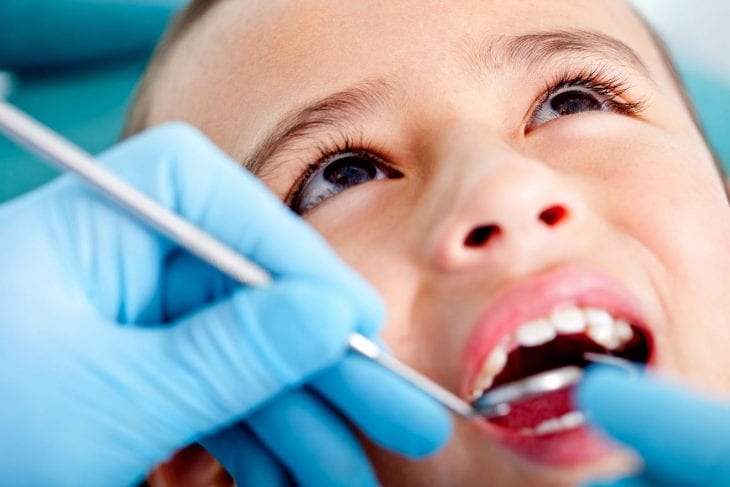Having crooked teeth is not a fun experience. Aside from being the butt of harmful jokes and teasing, they can make it easier for people to develop cavities and gum disease. It could even lead to excruciating teeth and gums. Here are 5 tips to prevent children from growing crooked teeth.
Contents
1. Wrong Dental Habits
Babies tend to put things in their mouth – everything. This is their way of figuring things out about the world. Cue: crooked teeth. Stop this by teaching them not to put random objects they find in their mouth. Here are a few ways you can prevent this by teaching your child the right dental habits:
- Have your child brush his/her teeth the moment teeth come through the gums (by brushing your teeth and letting them see you do it)
- Show them how to avoid acidic sodas and sugary snacks, which will only damage their teeth (and ours too, if we’re not careful)
- Practice eating nutrient-rich healthy foods such as spinach, carrots and broccoli (the ‘soft food theory’ suggests that eating soft foods doesn’t work the jaw enough

Img source: verywellhealth.com
2. No Thumb Suckles
As a baby onwards (well into age 7), my cousin sucked on his thumb constantly. Whether we were at school, relaxing at home, or even falling asleep. His thumb always found its way to his mouth. Looking back now, it’s no wonder he required braces to fix his crowded teeth. Putting unusual pressure (like a thumb) on gums cause teeth to grow misshaped, because jaws develop at unnatural shapes due to the force. This includes sucking on pacifiers, bottle feeding, tongue thrusting, etc.
3. Lost Tooth
Losing baby teeth is a part of the growing process. If it is lost earlier than expected, though, nearby teeth will “stretch out” and try to make the new space home. This makes it difficult for adult teeth to grow, as they are cramped together like chickens in a cage. This is one major cause for crooked teeth. This can be fixed by making an appointment with a dentist, who will most likely find teeth which are most disposed to lean into the gap.

Img source: perfectteeth.com
4. Genetics
Whether we like it, genetics play a large part in our physical appearances and ourselves as we are. Physiologically, I’ve inherited my family’s depression; physically, I’ve inherited our family’s knee and back woes. Crooked teeth are no different – such as an upper jaw that is lower or higher than the lower jaw. You cannot change the DNA, but by knowing what happened in the past with you and your habits, you have the opportunity to fix the future’s problem before it gets worse.
5. Sleeping on The Stomach
For babies and adults both, sleeping on our stomachs is not healthy. This is because crooked teeth put pressures on our cheeks and mouth, damaging them. It also puts unnecessary strains on the back and neck, as it is difficult to maintain a proper spine position (since most of our body weight is in the center of our body).

Img source: dietdoctor.com
Conclusion
Although not desirable, it is not the end of the world. Signs and symptoms are easy enough to spot if you know what to look for. Early signs of crooked teeth include speaking difficulties and hard times swallowing. As teeth come through gums, your orthodontist may be able to prevent extensive treatment later in life. Typically, correcting crooked teeth before the age of 10 is easier. Those who are 12 or older may need braces to correct their crooked bite.
